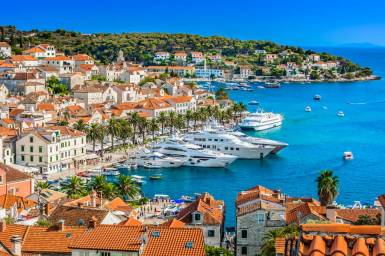Why study in Croatia’s Higher Education System
 Posted date: 15 Jan 2021
Posted date: 15 Jan 2021
Croatia is a diverse country that has in recent years become a far more popular destination for studying abroad. Croatia is a natural blend of several different cultures, situated right between the western and eastern worlds. Students studying in Croatia, each of which is very special, would love to explore all regions of the world. Croatia is also ideally positioned for visits to Austria, Hungary, Italy and Slovenia.
The tuition fees for study programmes in Croatia are set by each institution of higher education. The level of tuition fees depends on the type and length of the type of study programme. Therefore, for correct information on tuition fees, it is critical that prospective students directly contact the higher education institution they are interested in.
Depending on the higher education institution and the area of study, the range of tuition charges for foreign undergraduate students varies. The tuition fee for university degree programmes in the humanities and social sciences ranges from Kuna 6,000 (approximately EUR 800) to Kuna 16,500 (approximately EUR 2,200) per year, The tuition fee for technical sciences is approximately Kuna 22,000 per year (approximately EUR 3,000) and the tuition fee for scientific and medical studies is approximately Kuna 27,000 per year (approximately 3,600 EUR). Upon request, tuition fees for graduate and postgraduate programmes should be received directly from higher education institutions, since they vary considerably.
Prospective students may be enrolled in an undergraduate study programme that has completed secondary education. The forms of secondary education that are eligible for admission to a certain undergraduate or professional study programme are decided by higher education institutions. Normally, prospective applicants are expected to have completed a minimum of 4 years of high school education. Postgraduate studies: In a postgraduate study programme, prospective students who have completed a relevant graduate study programme can enroll. Additional requirements for enrollment in postgraduate studies may be stipulated by higher education institutions.
EU/EEA/Swiss nationals are not necessary to obtain a visa but must, within 90 days of their arrival, register with the local authorities. Generally, all non-EU/EEA/Swiss residents must hold a student visa along with a residency permit. Before travelling to Croatia, a visa must be obtained. You are able to apply for a residency permit upon arrival in Croatia.
Posted By

GSP Admin




